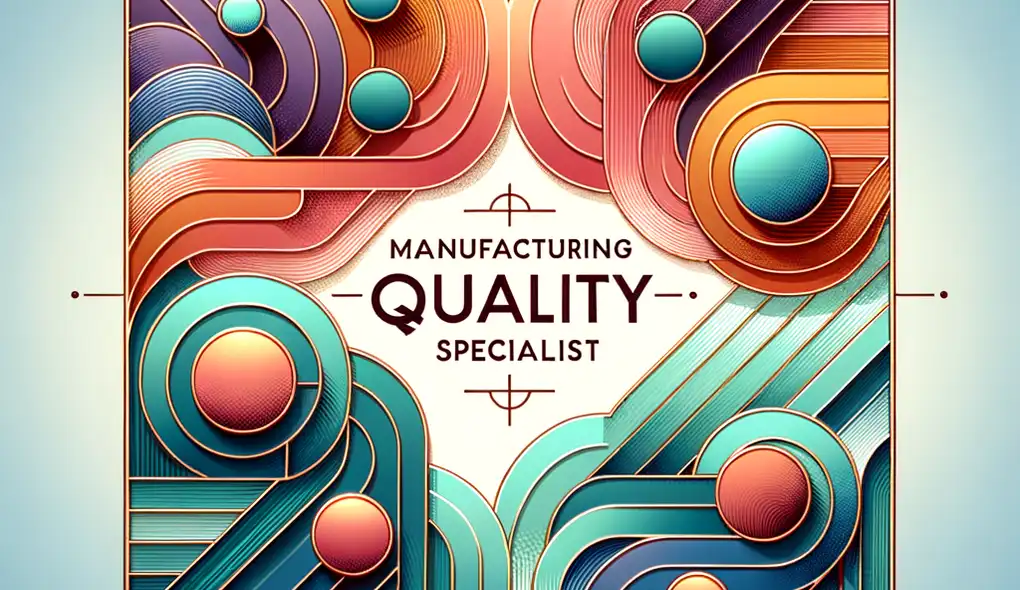How do you ensure effective communication and collaboration with suppliers?
Manufacturing Quality Specialist Interview Questions
Sample answer to the question
To ensure effective communication and collaboration with suppliers, I believe in establishing clear lines of communication and building strong relationships. I regularly communicate with suppliers through various channels such as email, phone calls, and meetings to discuss any issues or concerns. I also make sure to provide them with detailed product specifications and requirements in order to prevent any misunderstandings. Additionally, I believe in setting mutual goals and expectations with suppliers, and regularly evaluating their performance to ensure they are meeting our standards. If any issues arise, I address them promptly and work together with the suppliers to find a resolution.
A more solid answer
Ensuring effective communication and collaboration with suppliers requires a multi-faceted approach. Firstly, I establish clear lines of communication and build strong relationships with our suppliers. This involves regular communication through various channels such as email, phone calls, and in-person meetings. I believe in proactive communication, promptly addressing any issues or concerns that arise. To ensure attention to detail, I provide suppliers with detailed product specifications and requirements, leaving no room for ambiguity or misunderstanding. I also set mutual goals and expectations with suppliers, and conduct regular performance evaluations to ensure they are meeting our standards. In cases where issues or discrepancies are identified, I collaborate with the suppliers to find a resolution that satisfies both parties. By fostering open and transparent communication, we build a strong foundation for effective collaboration.
Why this is a more solid answer:
The solid answer provided more specific details and examples to demonstrate the candidate's abilities in communication and collaboration. It highlighted the importance of proactive communication, setting mutual goals, and conducting regular performance evaluations. However, it can still be improved by including examples of successful collaboration with suppliers and specific strategies for addressing issues and discrepancies.
An exceptional answer
To ensure effective communication and collaboration with suppliers, I employ a strategic and comprehensive approach. Firstly, I establish open and transparent lines of communication with our suppliers, ensuring that all relevant stakeholders are in regular contact. This includes not only the procurement team but also key members from engineering, production, and quality control. By fostering cross-functional communication, we ensure that all parties are aligned and working towards the same goals. In addition to regular communication, I organize periodic supplier meetings to review performance, discuss upcoming projects, and address any concerns. These meetings allow for in-depth discussions and enable us to identify potential bottlenecks or areas for improvement. To ensure attention to detail, I create and maintain a comprehensive supplier database that includes detailed product specifications, delivery timelines, and quality control requirements. This centralized database serves as a single source of truth for all supplier-related information and enables quick and accurate retrieval of data when needed. Furthermore, I regularly conduct supplier audits to assess their adherence to our quality standards and identify any areas of improvement. These audits not only provide valuable feedback to the suppliers but also help us evaluate their long-term suitability as partners. In cases where issues or discrepancies are identified, I follow a structured problem-solving approach, employing tools such as root cause analysis and corrective action planning. By involving the suppliers in this process, we develop mutually beneficial solutions and strengthen our collaboration. Overall, my approach to effective communication and collaboration with suppliers is based on open communication, attention to detail, and a continuous improvement mindset.
Why this is an exceptional answer:
The exceptional answer provided a strategic and comprehensive approach to ensure effective communication and collaboration with suppliers. It included specific strategies such as cross-functional communication, periodic supplier meetings, and supplier audits. It also mentioned the use of tools like root cause analysis and corrective action planning. The answer demonstrated not only strong communication and collaboration skills but also attention to detail and a continuous improvement mindset. However, it can still be improved by including specific examples of successful collaboration with suppliers and showcasing the candidate's leadership and team management skills in this area.
How to prepare for this question
- Familiarize yourself with the company's supplier management processes and the key stakeholders involved.
- Research and understand the industry best practices for effective communication and collaboration with suppliers.
- Reflect on your past experiences and identify specific examples where you successfully collaborated with suppliers to achieve positive outcomes.
- Practice articulating your communication and collaboration strategies, highlighting your attention to detail and problem-solving abilities.
- Be prepared to discuss how you have addressed issues or discrepancies with suppliers in the past and how you have contributed to continuous improvement in this area.
What interviewers are evaluating
- Communication skills
- Collaboration skills
- Attention to detail
Related Interview Questions
More questions for Manufacturing Quality Specialist interviews